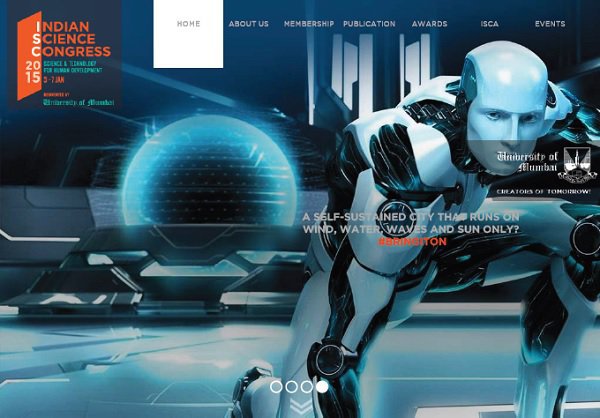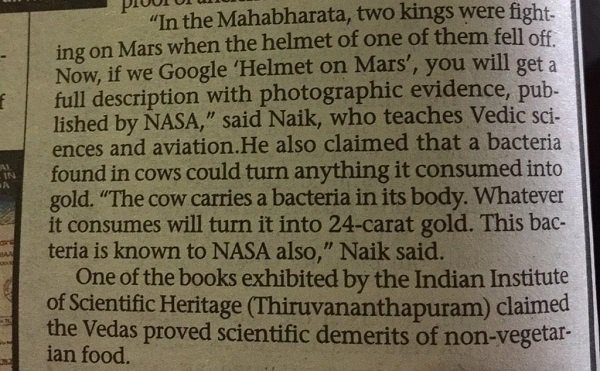The 102nd Indian Science Congress is being held from January 3-7 2015 under the aegis of Mumbai University with the focal theme of “Science & Technology for Human Development”.
With a hashtag like #BringItOn and a website which opens up like a Tron poster, one would think by human development they meant human development… in the future.

But when on the second day itself, there were symposiums on ancient Indian aircraft capable of interplanetary journeys, and the Pythagoras Theorem apparently proven by India 300 years before it was actually proved by Greece, the general atmosphere of the congress seems incredibly unscientific.
Though he isn’t a PhD doctor, he is a doctor doctor so when Dr. Harsha Vardhan says “Our scientists discovered the Pythagoras theorem but we very sophisticatedly gave its credit to the Greeks”, you better believe it.

Okay Sir, whatever you say.
Also, our Environment minister Mr. Prakash Javadekar swears that Sanskrit knowledge is the panacea for all human development.

Sure, maybe it is time we started using Sanskrit to reduce poverty, ensure safety and bring about world peace.
Also, did you know that Indians have fought wars on Mars?
Mangalyaan? Bitch please.
Oh and our holy cow can turn food into 24 carat gold using magic bacteria. Meri gaai doodh nahi, sona deti hai.

Of course, no coverage of the Science Congress can be complete without throwing some light on the ‘Ancient Indian Aviation techniques’, the center of much debate. Here is the lowdown:
Some 6000-7000 years ago, Maharishi Bharadwaj wrote ‘ guidelines’ to build HUGE planes capable of flying from planet to planet, continent to continent and heaven to hell, if you like.

Basically, if we were born in Ancient India, we would have lived life like the Jetsons surrounded by the Flintstones. Say what!
The ancient texts and the cultural and scientific history of India have many inventions, innovations and ingenuity that we should be proud about.
But pride should not cloud our view of what has been achieved by mankind so far.
Let’s try again, shall we?
Feature Image: Rense.com

















